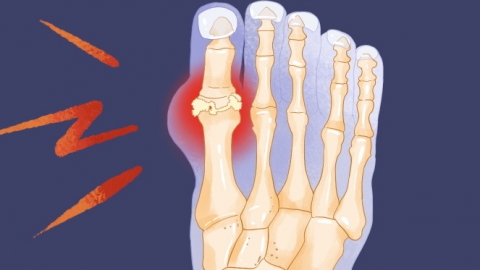Why does gout never fully resolve after the first attack?
Generally speaking, the statement that gout will never be cured once it occurs is too absolute. Having a single gout attack does not mean a lifelong condition, although long-term management is necessary. The reasons can be considered from aspects such as abnormal uric acid metabolism, cumulative joint damage, recurrent inflammation, increased kidney burden, and difficulty in changing dietary habits. If any abnormalities occur, timely medical attention is recommended. Detailed analysis is as follows:

1. Abnormal uric acid metabolism: The fundamental cause of gout is excessive production or insufficient excretion of uric acid in the body. This metabolic abnormality usually cannot be completely corrected, making the condition prone to recurrence.
2. Cumulative joint damage: Each gout attack causes damage to the joints and surrounding tissues. Long-term accumulation may lead to joint deformity or functional impairment, further worsening the condition.
3. Recurrent inflammation: Although acute gout inflammation can be controlled with medication, if uric acid levels are not consistently maintained within target range, inflammation may recur repeatedly, leading to the development of chronic gouty arthritis.
4. Increased kidney burden: Hyperuricemia can damage the kidneys, and long-term deposition of uric acid crystals may cause kidney stones or declining kidney function, thereby increasing the complexity of the condition.
5. Difficulty in changing dietary habits: Gout patients often have poor eating habits, such as excessive intake of high-purine foods. Even with conscious adjustments, it is difficult to completely avoid triggering factors, increasing the risk of recurrence.
In addition, some gout patients have genetic susceptibility. This innate factor makes uric acid metabolism issues difficult to cure completely, making the condition more prone to recurrence. Patients are advised to strictly control their diet, avoid high-purine foods, and maintain a healthy lifestyle, such as engaging in moderate exercise, controlling body weight, and drinking plenty of water to promote uric acid excretion.






